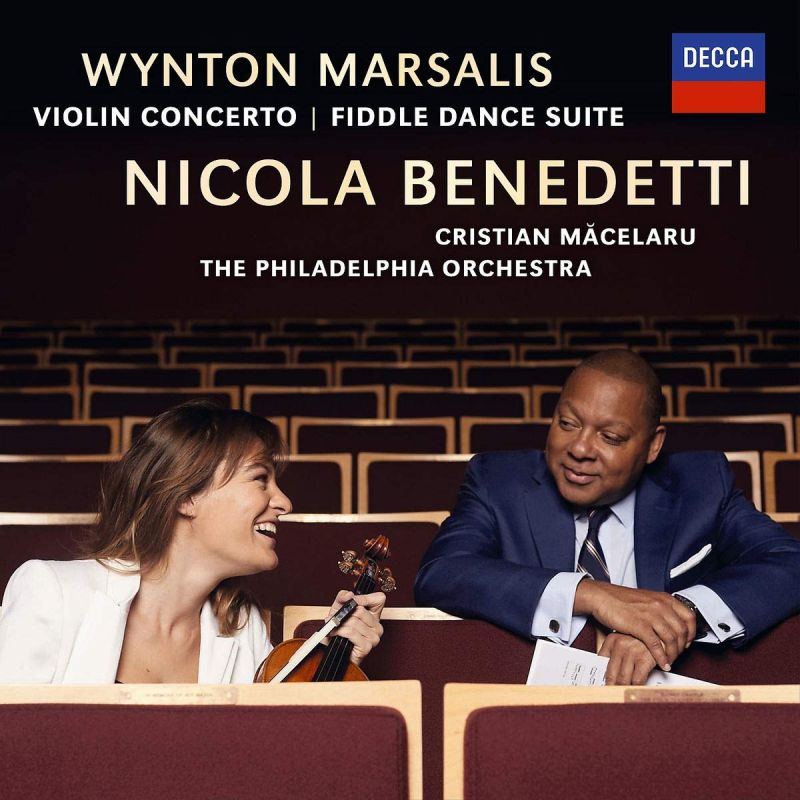MARSALIS Violin Concerto. Fiddle Dance Suite (Benedetti)
View record and artist detailsRecord and Artist Details
Composer or Director: Wynton Marsalis
Genre:
Orchestral
Label: Decca
Magazine Review Date: 08/2019
Media Format: CD or Download
Media Runtime: 67
Mastering:
DDD
Catalogue Number: 485 0013

Tracks:
| Composition | Artist Credit |
|---|---|
| Concerto for Violin and Orchestra |
Wynton Marsalis, Composer
Cristian Măcelaru, Conductor Nicola Benedetti, Violin Philadelphia Orchestra Wynton Marsalis, Composer |
| Fiddle Dance Suite for Solo Violin |
Wynton Marsalis, Composer
Nicola Benedetti, Violin Wynton Marsalis, Composer |
Author: Edward Seckerson
So the moment we scent polytonality and the first marching band passes by (it arrives with a whistle and doubtless a few cheerleaders), a collage of sorts is emerging. Marsalis leads the cavalcade. The first big tutti belongs assuredly in the jazz world; and while there’s plenty of violinistic swoon in the principal theme, one can surely hear his trumpet in the nature of the writing.
Marsalis gives his muse, Nicola Benedetti, plenty to get her teeth into. A couple of big cadenzas tap into her Celtic roots and show off her technical prowess. There’s a furious motoric scherzo with more than a touch of Prokofiev about it (and yes, another marching band), and a sultry Blues which builds to a gospel-like oration replete with whoops of endorsement from the orchestral winds is fervent and then some. Stamping and clapping its way into the finale, the hoedown arrives in earnest – a raucous Hootenanny culminating in what can only be described as an American ‘hurrah’. Whereupon the lone fiddler tootles off into the mists of time, playing as she goes. I enjoyed the ride. The Philadelphia Orchestra and its audience clearly did, too.
And then there’s the companion piece – Fiddle Dance Suite – and it is very much the closest of relatives. This is Benedetti’s solo turn and it sits somewhere between Bach’s unaccompanied Partitas and a Celtic shindig (though the former might have drawn the line at a repetition of the aforementioned stamping). It’s a folksier, more localised idiom for sure (I love the yearning homesick lament that is the second of its five movements), though the jazzer’s personality is reflected in the way it feels like music created in the playing of it. Honestly, it’s hard to believe it’s written down at all.
Discover the world's largest classical music catalogue with Presto Music.

Gramophone Digital Club
- Digital Edition
- Digital Archive
- Reviews Database
- Full website access
From £8.75 / month
Subscribe
Gramophone Full Club
- Print Edition
- Digital Edition
- Digital Archive
- Reviews Database
- Full website access
From £11.00 / month
Subscribe
If you are a library, university or other organisation that would be interested in an institutional subscription to Gramophone please click here for further information.




